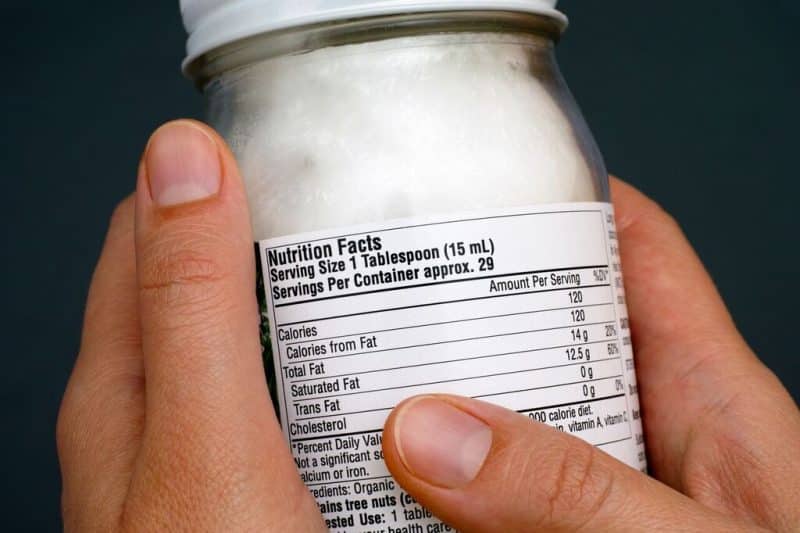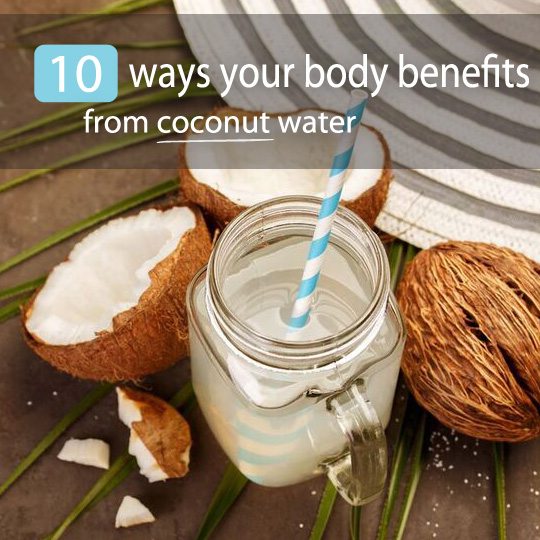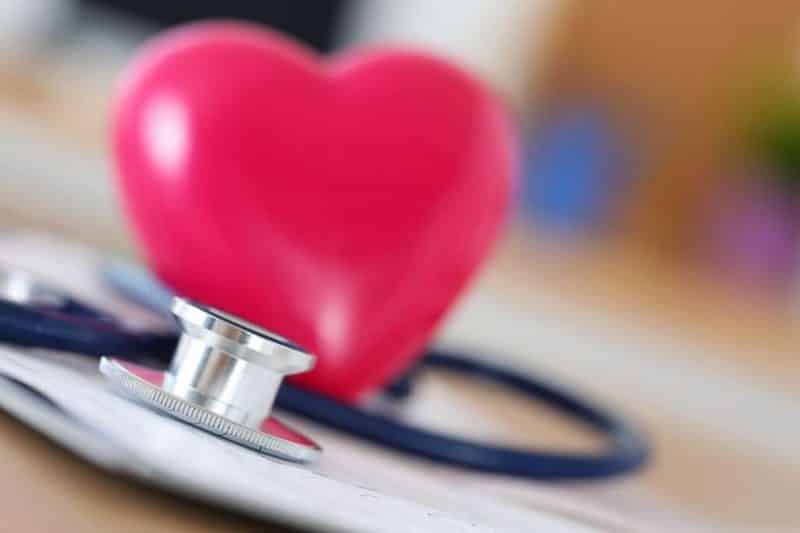
Got Milk?
Chances are the answer to this popular slogan is yes (and plenty of it). Ever since you were a little kid, did your mom tell you to drink cow’s milk to help you grow strong bones and teeth? Did she tell you it’s a great source of calcium and vitamin D? While many of us grew up sporting milk mustaches, today, there’s a lot of controversy surrounding dairy. While U.S. health authorities still recommend people drink three glasses of milk a day, researchers are saying there’s greater benefit in ditching the creamy liquid altogether. To quote the famous Dr. Mark Hyman: “Dairy is nature’s perfect food — but only if you’re a calf.”
1) You’ll Strengthen Your Bones
Wait … what? While many people were raised thinking their bones would crumble if they didn’t drink enough milk, many researchers believe cutting the popular drink out of your diet could actually help to improve bone health.According to a 2014 study published in the British Medical Journal, researchers who followed more than 100,000 people in Sweden over a period of 20 to 30 years found milk drinkers suffered more overall bone fractures and hip fractures.
Additionally, researchers in a 12-year Harvard study, who followed 77,761 women nurses, found no evidence that drinking milk decreases a person’s risk of bone fractures. In fact, they wrote:
“Women consuming greater amounts of calcium from dairy foods had significantly increased risks of hip fracture, while no increase in fracture risk was observed for the same level of calcium from nondairy sources.”

So what’s the deal? Why isn’t dairy great for our bones like we once thought?
It may have something to do with the way dairy affects your body’s pH. If you think back to science class, you’ll remember that when you pour milk on top of a pH strip that it’s a base versus an acid. While that’s true, in the body, dairy has an acidic effect. When the body becomes too acidic, health suffers. So to balance out pH levels, your body turns to its natural acid blocker — calcium. It will draw calcium from your bones to fight the acid and return your body’s pH levels to a balanced state. So in other words, dairy actually takes calcium from your body.
2) Your Digestion May Improve
Around 75 percent of the world’s population can’t properly digest milk or other dairy products. It’s called lactose intolerance. According to the Physicians Committee for Responsible Medicine, virtually all infants and young children have lactase enzymes that split lactose into glucose and galactose, which is then absorbed into the bloodstream. However, the majority of people lose their lactase enzymes after weaning. For people who lack those enzymes, they may experience gas, bloating, cramps, and diarrhea after drinking milk.
3) Your Skin Will Clear Up
Pimples, red blotches, and scars … oh my! Today, around 60 million Americans suffer from acne. It’s pretty fair to say that most people would try just about anything to get rid of their pimples. Often times, people try different cleansers and creams, hoping they will zap their zits. While they can be helpful, it’s important to remember that a healthy outside starts from the inside.Today, researchers are linking both dairy and sugar consumption with acne. Various studies found that consuming cow’s milk increased both the number of people who got acne and its severity. But if you think dairy is linked to acne because of its high fat content, think again. In fact, studies have shown people who drink skim milk suffer more breakouts than those who drink whole full-fat milk.
The problem partly lies in milk’s hormones. Remember, cows have to either be pregnant or lactating to produce milk. During this time, they are full of hormones. That’s why there really is no such thing as hormone-free milk. Did you know there are about 60 hormones in your average glass of milk (even organic, raw, and bovine growth hormone-free milk)?
Additionally, drinking a glass of milk can spike insulin levels 300 percent, which raises the glycemic index and can lead to breakouts. I used the word “lactose” earlier. Lactose is milk sugar and can be extremely problematic for many people since it not only raises blood sugar levels, but many have allergic reactions to it.

4) You May Lower Your Risk For Certain Cancers
Certain foods, like fresh fruits and vegetables, have been known to fight cancer cells. Other foods, like sugar, have been known to feed cancer cells. Today, there have been many studies done on the relationship between dairy consumption and cancer. As of now, the results are mixed. However, there are certain types of cancers that researchers believe dairy can contribute to. For example, most large studies link high dairy consumption with increased risk of prostate cancer, which is the most common cancer among men in the United States.Studies also show if you drank milk as a child, your risk may be greater. One study looked at 8,894 men, born between 1907 and 1935. Researchers found the men who drank large amounts of milk early in life had an increased risk of advanced prostate cancer as adults.
Researchers have also linked milk to breast, ovarian, and testicular cancers, however, more research is needed.
5) You’ll Reduce Your Exposure to Added Antibiotics and Hormones
There really is no such thing as hormone-free milk, since milk comes from pregnant or lactating cows that are full of hormones. However, there is a huge difference between raw milk and the pasteurized stuff most Americans keep in their refrigerator.First of all, most of the milk you get at the grocery store comes from cows that have been given bovine growth hormones (rBGH). This type of hormone is used to significantly increase milk production in cows. Doctor Joesph Mercola pointed out that treated cows can produce as much as 15-25 percent more milk. But this isn’t the only thing found in our milk supply.

6) You May Improve Your Sinuses
When the weather changes, do you start to sneeze a lot? Do you get watery eyes, an itchy nose, and the feeling of congestion? If so, you’re not alone. Millions of Americans suffer from seasonal allergies each year, which irritates your sinuses. Along with talking to your doctor about allergy medicines or natural remedies, you may also want to lay off dairy products, like milk. While it’s scientifically unclear whether this is true, many people swear dairy products promote the formation of mucus and worsen congestion.Additionally, a lot of people are allergic to milk. An allergic reaction to milk isn’t the same thing as lactose intolerance. Rather, it’s when your body perceives milk as a threat and attempts to protect itself. When this happens, you may experience a runny nose or breathing problems. Again, this irritates the sinuses. Dr. Weil, a holistic health physician, says people who ditch diary can see a dramatic improvement in sinus problems in just two months!
7) You May Feel a Boost of Energy
When someone suffers from digestive problems, inflammation, or sinus issues, their energy level drops. Think about it — who has the energy to workout if they feel bloated or congested? By improving other aspects of your health, you will naturally give yourself a boost of energy. Who knows, with your new zest for life you may spend a little more time at the gym burning calories and aiding weight loss. Overall, ditching dairy is a positive.Tips For Going Dairy-Free (Without Turning To Soy)
When a lot of people ditch dairy, they turn to fake cheese products, foods full of carbohydrates, and soy. These are no better for your health. Instead, check out these tips to make going dairy-free a breeze.
Instead of Milk
There are plenty of other options than cow’s milk. If you still want to enjoy a bowl of overnight oats, cereal, milk in your coffee, or just a tall glass of milk, try nut milk.- Almond milk
- Hazelnut milk
- Rice milk
- Hemp milk
- Coconut milk
You can use any of these five nut milks to create a delicious breakfast smoothie. They also work in pancakes and other baked goods. With so many options, there really is no need for cow’s milk!
Instead of Cooking With Butter
Instead of butter, try cooking with coconut oil, avocado oil, or olive oil. None of these options contain dairy and they all have powerful nutrients that benefit the body in many ways.Spreads and Toppings
If you go dairy-free, you will have to give up more than just milk. Butter, cheese, cream cheese, and sour cream are all popular spreads/toppings that you will have to replace. Some other great spreads include:- Nut butter (peanut, almond, cashew)
- Avocado
- Hummus
Don’t Quit Cold Turkey
My first three tips to going dairy-free had to do with food replacements. While that is incredibly important, these next two tips are also crucial if you want to successfully give up dairy and maintain a dairy-free diet. Don’t wake up tomorrow and eliminate everything dairy. The trick to success is gradual elimination. As you slowly weed out milk, cheese, butter, and other dairy foods, begin to introduce the food replacements I mentioned a second ago.
Plan Ahead
As you incorporate the dairy-free food replacements into your life, you will realize that giving up dairy isn’t that hard. It’s just a matter of planning ahead, especially if you are eating out. Before heading to a restaurant, take a look at their menu online. Don’t hesitate to call and ask if they include dairy in whatever dish you are thinking of ordering. It’s always better to be safe than sorry!
P.S. Take a look at the 5 veggies that boost female metabolism and burn off lower belly fat.















































